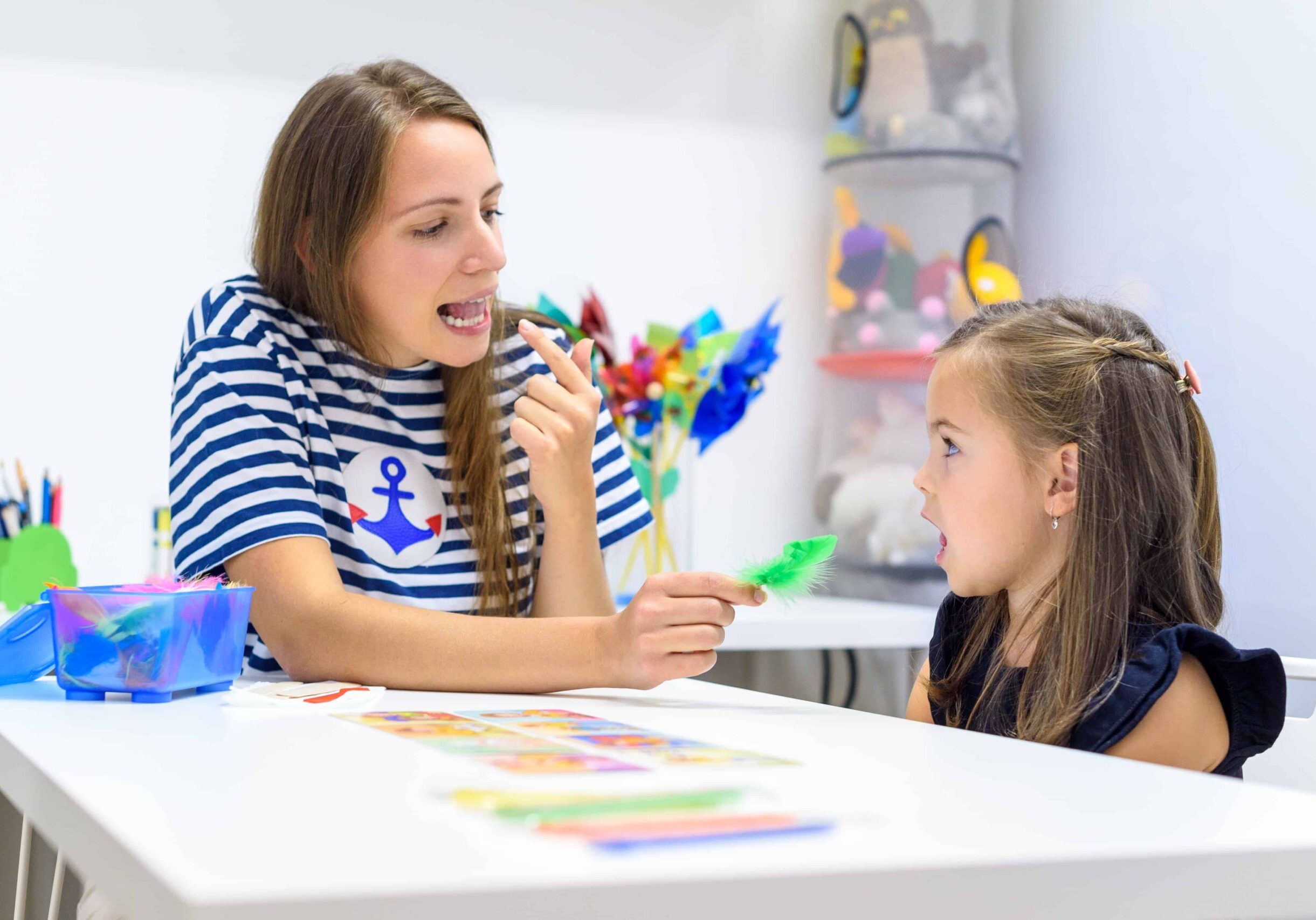Speech Pathology
Helps children to develop their communication or eating ability
What is Speech Pathology?

Speech pathologists are allied health professionals who are experts in communication.
Speech Pathologists can help children with expressive and receptive communication, social communication, language, literacy, fluency, voice and swallowing.
They are also key professionals in assessing for and prescribing alterative augmentative communication (AAC) devices or helping children and their caregivers with sign language.
We can support children with
Language
Language skills are the key to communication, which is an essential part of participation in everyday activities.
Language is learning and understanding words, names, making sentences and using grammar.
Speech pathologists can help to improve a child’s understanding of what others are saying to them, as well as improving the child’s ability to express themselves.
Speech Sounds
Children learn speech sounds by listening and copying sounds. This involves brain perception, language recognition and articulation.
Difficulties can arise due to motor problems, hearing, phonological processing difficulty, articulation and more.
When others can’t understand what a child is saying, it can lead to significant frustration. Speech pathologists can assess and treat speech sound disorders to improve the sound and pronunciation.
Literacy
Literacy is the ability to make sense of the world. We do this by speaking, reading, writing and also by understanding those things.
In early childhood we focus on phonological awareness such as counting, learning syllables, rhyming and sound patterns.
At school age literacy involves learning letter recognition/formation, writing, spelling, punctuation and reading.
Brain Injury
Speech Pathologist are key allied health professionals involved in assisting recovery from Brain Injury.
Depending on the part of the brain that is injured, a Speech pathologist may help with receptive or expressive communication, swallowing difficulties, executive functioning, fluency and social communication.
Fluency
Fluency is clear understandable speech. When a fluency problem is present there may be difficulties due to sound repetitions such as a stutter or a perceived effort in sound production.
It is also the ability to read accurately and quickly.
Speech Pathologists can become specially trained to help children with their fluency.
Voice
A voice disorder occurs when there is a problem with the pitch, tone, loudness or inappropriate language.
A Speech Pathologist can help to determine the cause and develop a clear plan to help the child with their communication needs.
AAC
Some children are unable to communicate verbally.
Where indicated, Speech pathologists are able to assess the need for and access a range of assistive communication techniques such as key word sign, communication boards and books, and high-tech communication device.
AAC takes a lot of practice to be used and involves training of carers and family members.
Swallowing
The name for swallowing difficulties is Dysphagia.
A specially trained Speech Pathologist can assist with swallowing difficulties by assessing and developing a plan which may include
- Mealtime management plan
- Provision of mealtime equipment
- Strategies to improve safety during mealtimes
- Therapy
Due to complexities and safety of swallowing dysfunction we will often refer you to a specialised service outside of Therabees.
